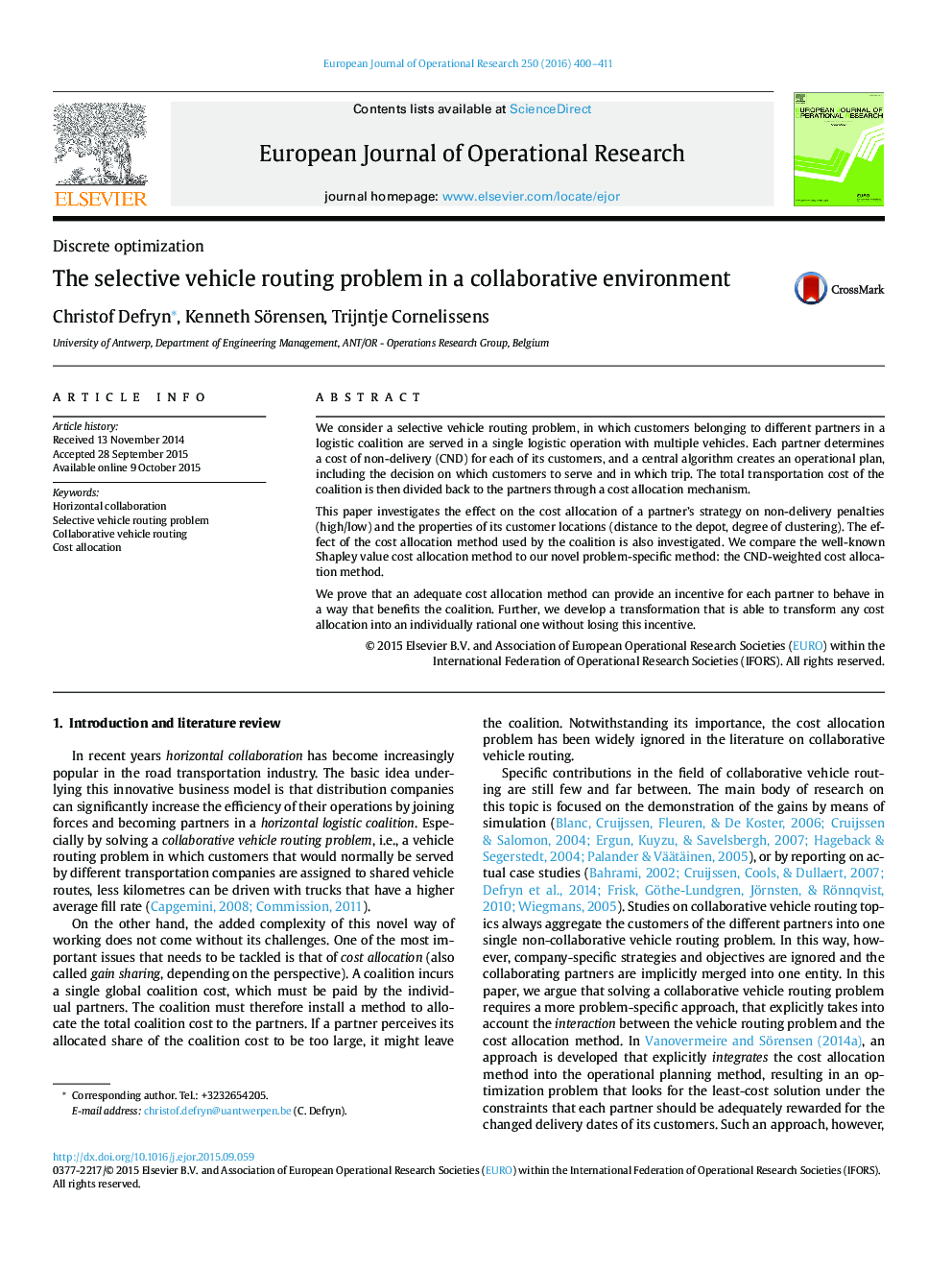| Article ID | Journal | Published Year | Pages | File Type |
|---|---|---|---|---|
| 479311 | European Journal of Operational Research | 2016 | 12 Pages |
•We considered a SVRP in a co-operative environment with 3 partners.•The routing is extended with information on partner behaviour and cost allocation.•A new, CND-weighted allocation method is introduced and compared to the Shapley value.•An incentive to behave flexibly should be provided by the cost allocation method.•We propose a transformation towards an individually rational allocation.
We consider a selective vehicle routing problem, in which customers belonging to different partners in a logistic coalition are served in a single logistic operation with multiple vehicles. Each partner determines a cost of non-delivery (CND) for each of its customers, and a central algorithm creates an operational plan, including the decision on which customers to serve and in which trip. The total transportation cost of the coalition is then divided back to the partners through a cost allocation mechanism.This paper investigates the effect on the cost allocation of a partner’s strategy on non-delivery penalties (high/low) and the properties of its customer locations (distance to the depot, degree of clustering). The effect of the cost allocation method used by the coalition is also investigated. We compare the well-known Shapley value cost allocation method to our novel problem-specific method: the CND-weighted cost allocation method.We prove that an adequate cost allocation method can provide an incentive for each partner to behave in a way that benefits the coalition. Further, we develop a transformation that is able to transform any cost allocation into an individually rational one without losing this incentive.
